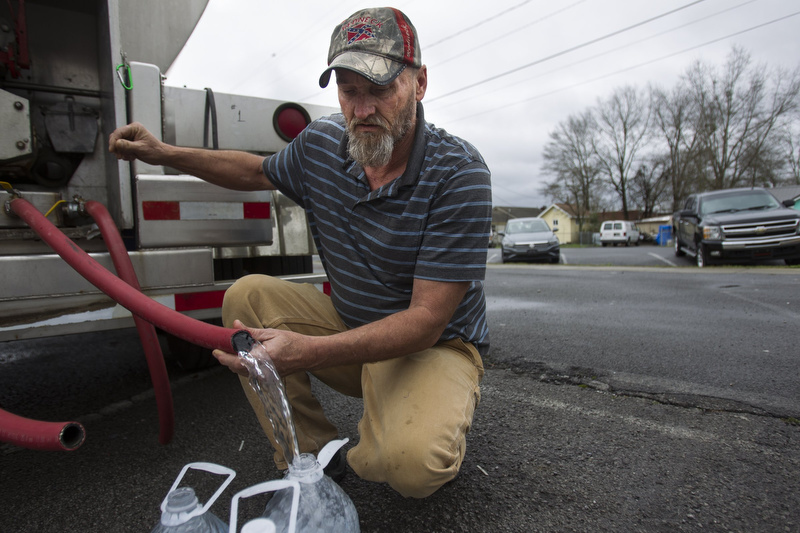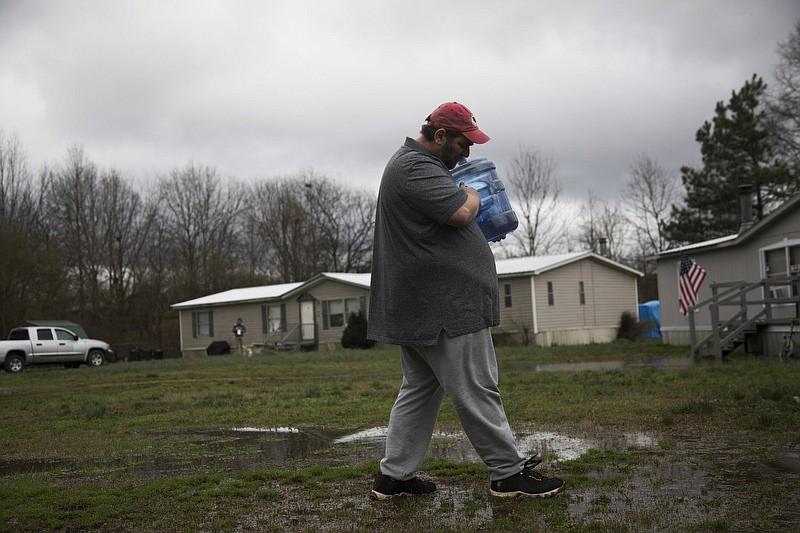The city of Summerville, Georgia, is considering building new water wells as a long-term solution to its ongoing water crisis.
City engineers have been given the go-ahead to apply for grants that would help pay for new water wells and to start looking for appropriate locations for new wells.
At Tuesday morning's city council meeting, Mayor Harry Harvey detailed a plan that would eventually phase out the city's Raccoon Creek treatment plant.
At the end of January, city officials were notified by the U.S. Environmental Protection Agency that water from Raccoon Creek showed high levels of perfluorooctane sulfonate and perfluorooctanoic acid.
Those manmade chemicals are used to make carpet, clothing fabric, cookware, paper, food packaging and other materials.
The city has said the levels of both chemicals in its water supply have not increased but the federal EPA standards changed in 2016.
Harvey said the plan is to drill a new well that could provide enough drinkable water to dilute and mix with the water from the Raccoon Creek treatment plant so the levels of the two contaminants are lowered.
Eventually, a second well will have to be drilled to completely phase out the Raccoon Creek facility, he said.
 Staff photo by Troy Stolt / Summerville resident Billy Joe Durham fills up jugs of clean water behind city hall on Thursday, Feb. 13, 2020 in Summerville, Georgia. On January 31st, Summerville residents were advised not to consume their tap water after cancer causing chemicals were discovered during a quality inspection done by the Environmental Protection District of Georgia.
Staff photo by Troy Stolt / Summerville resident Billy Joe Durham fills up jugs of clean water behind city hall on Thursday, Feb. 13, 2020 in Summerville, Georgia. On January 31st, Summerville residents were advised not to consume their tap water after cancer causing chemicals were discovered during a quality inspection done by the Environmental Protection District of Georgia. Between testing for potable water, supply demands and drilling the two final wells, the process likely will take a year to complete. City manager Janice Galloway has estimated the project and long-term solution could cost anywhere from $1 million to $1.2 million.
The city is considering five locations for the new wells. Most of the sites are on private land, so the city will have to make a deal with the landowner once a spot is chosen.
Harvey said the EPA and the Georgia Environmental Protection Division will be investigating who is responsible for contaminating the water.
He added the city agreed to set aside $100,000 from reserves to get the project started.
Harvey said the city is still looking at other possible fixes that include purchasing a filtration system for the Raccoon Creek facility.
Contact Patrick Filbin at pfilbin@timesfreepress.com or 423-757-6476. Follow him on Twitter @PatrickFilbin.
